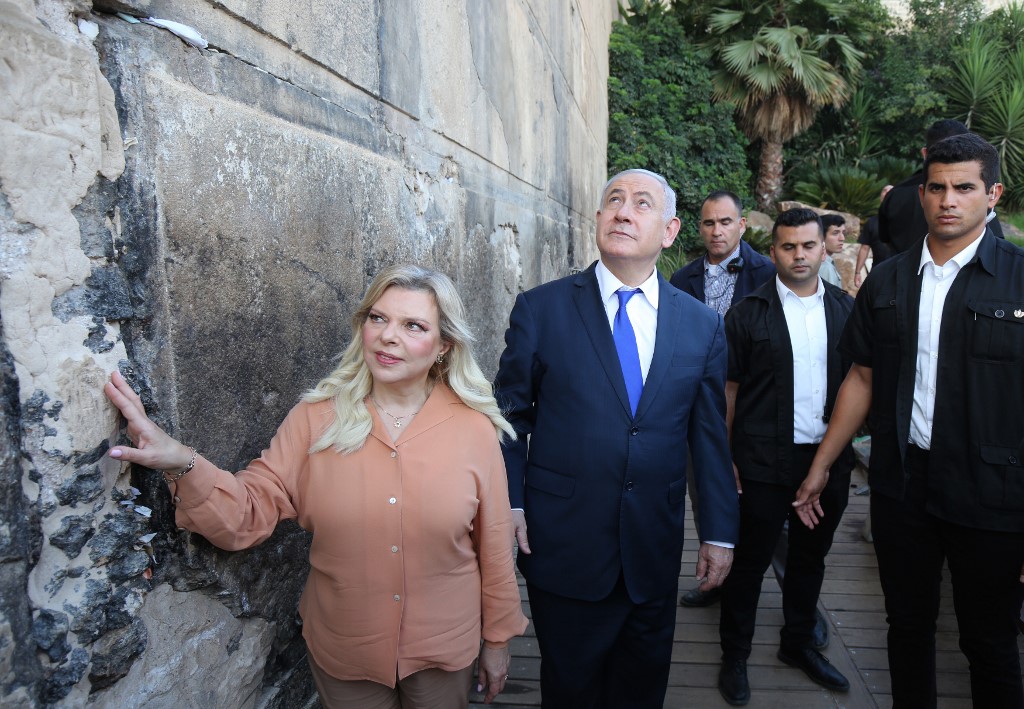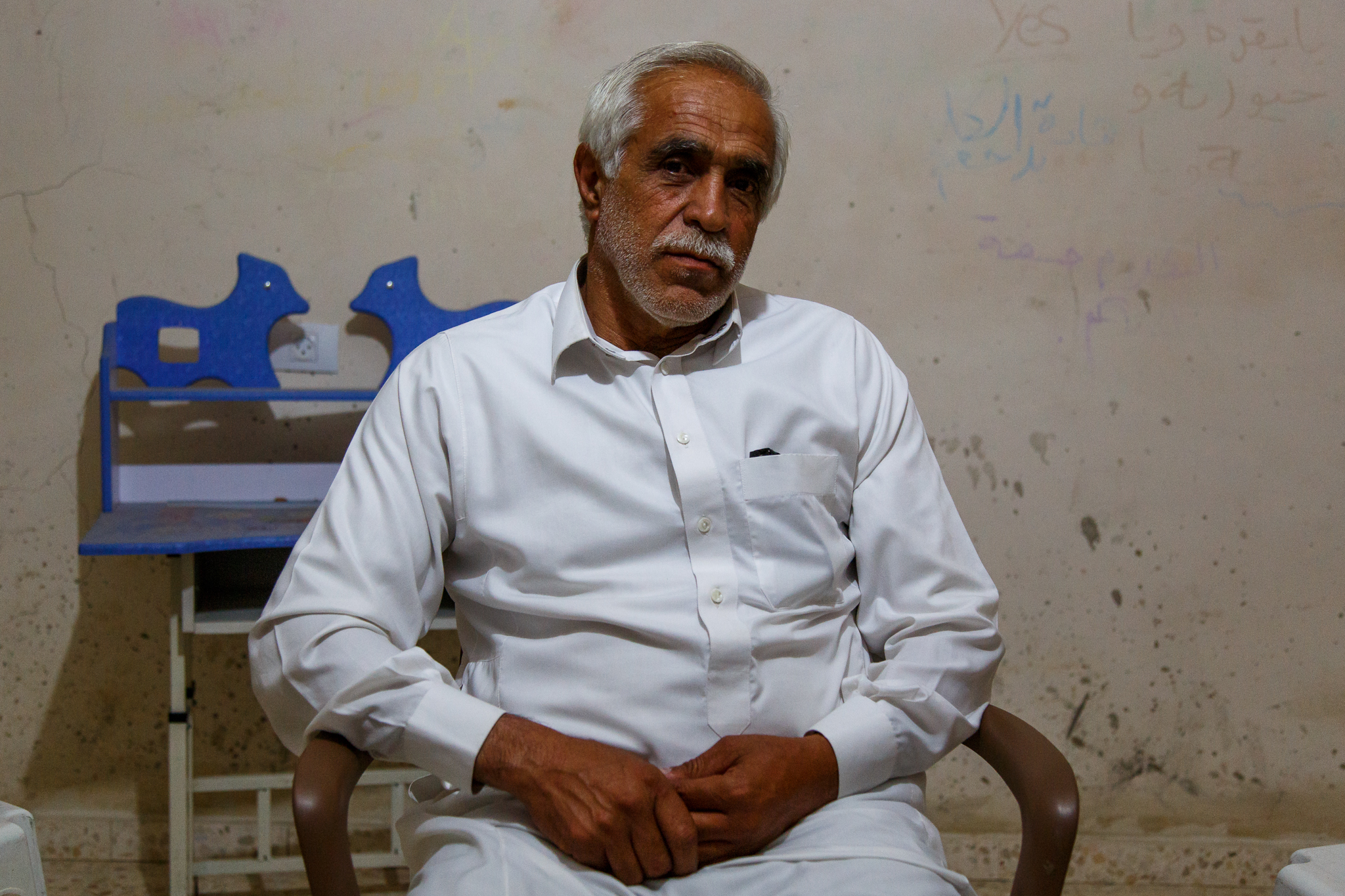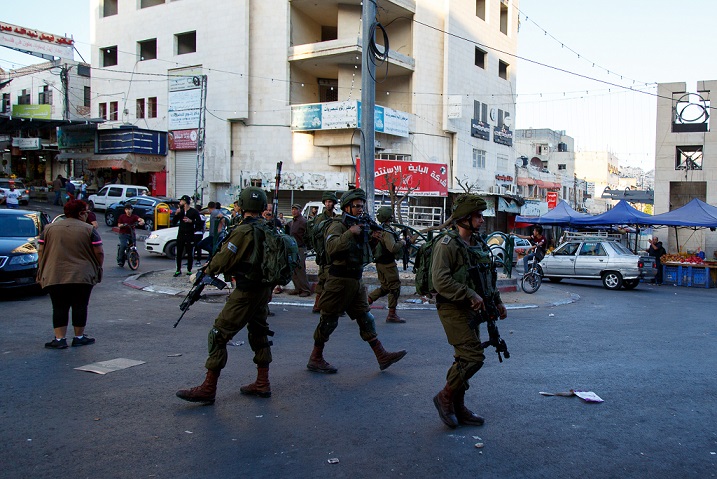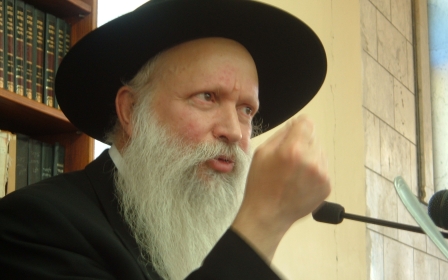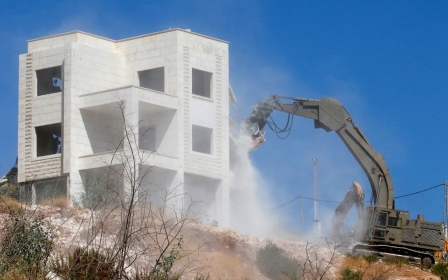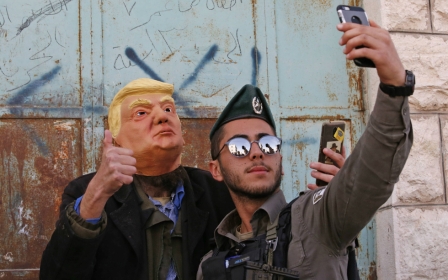Netanyahu visit to occupied Hebron sparks Palestinian outcry
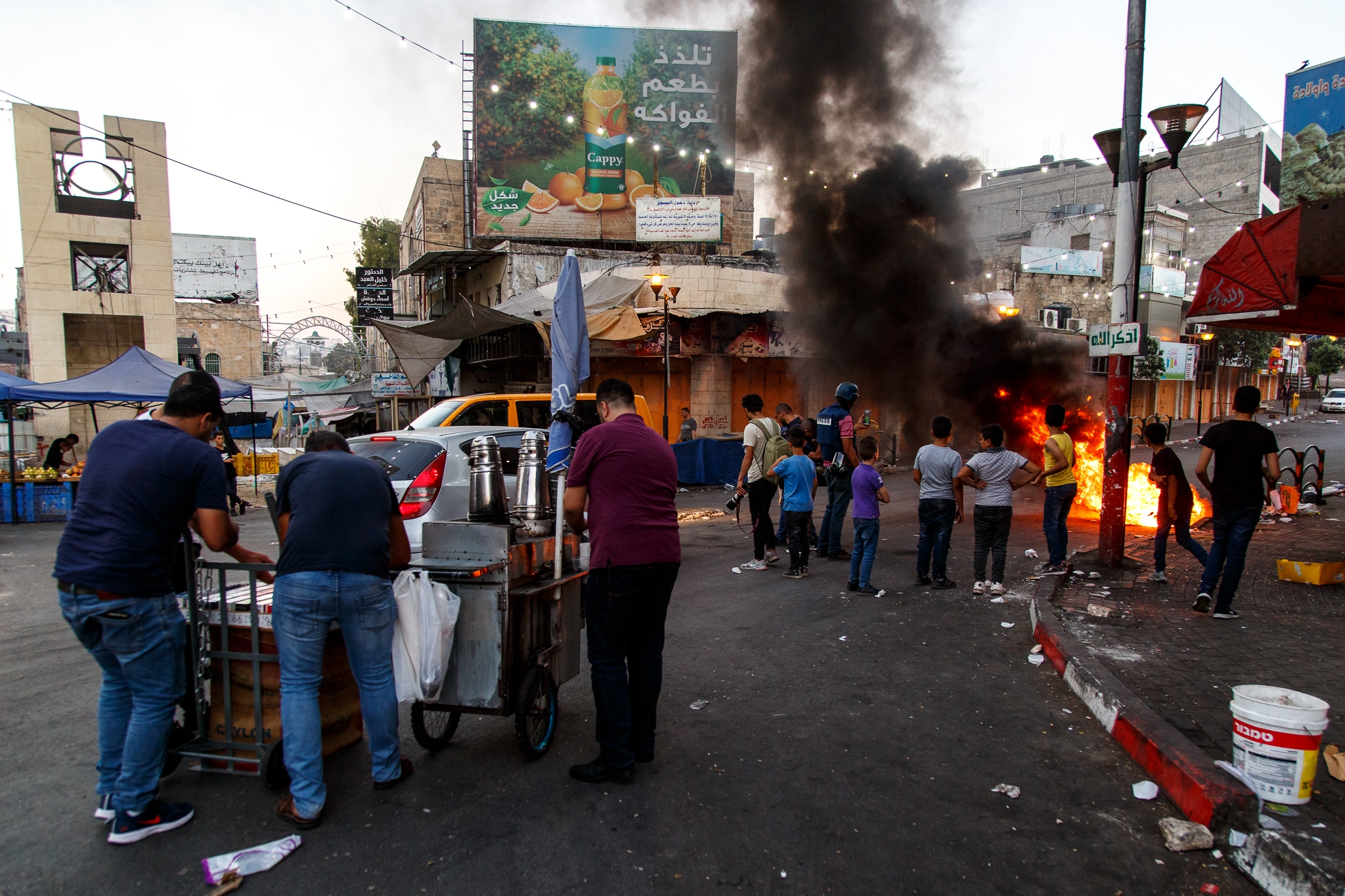
Benjamin Netanyahu became the first Israeli prime minister to give a ceremonial address at the Haram al-Ibrahimi, also known as the Tomb of the Patriarchs, during a visit to the occupied West Bank city of Hebron on Wednesday.
The visit sparked outcry from Palestinians, who feel their lives are being used by Netanyahu and his Likud party in a bid to garner more right-wing and ultra-religious votes ahead of elections set for 17 September.
'We are very disappointed and angry and provoked for being used as election material for Netanyahu to win the extremist votes'
- Issa Amro, Youth Against Settlements
"We're not seeking to disinherit anyone, but nobody will disinherit us," Netanyahu said at the ceremony. "We are not strangers in Hebron. We will remain here forever."
Issa Amro, founder of the activist group Youth Against Settlements, which organised two small protests during the visit, said he and others feel like they are "election material".
“We are very disappointed and angry and provoked by being used as election material for Netanyahu to win the extremist votes,” Amro told Middle East Eye.
New MEE newsletter: Jerusalem Dispatch
Sign up to get the latest insights and analysis on Israel-Palestine, alongside Turkey Unpacked and other MEE newsletters
Small clashes between Palestinian youth and Israeli soldiers broke out in the Palestinian-controlled area of Hebron near the entrance of the Old City. A few young boys were reportedly arrested.
Netanyahu’s made his speech at 5pm, but the entire area around the Haram al-Ibrahimi was closed off to Palestinians starting on Wednesday morning.
Palestinians living in the area were forced to stay inside their homes for hours as a few hundred settlers roamed freely for the event.
Tuesday marked the 90th anniversary of the 1929 massacre in Hebron, in which at least 67 Jews were killed during clashes that erupted over key religious sites. A ceremony was held in the Palestinian neighbourhood and Israeli settlement of Tel Rumeida located in an occupied area of the Old City referred to as H2.
Netanyahu did not visit Tel Rumeida, but Israeli president Reuven Rivlin and a few other Knesset members visited a Jewish cemetery there and celebrated its expansion.
According to Israeli media, Netanyahu was the last prime minister to “literally step foot” in the city of Hebron back in 1998. Ariel Sharon visited Hebron in 2002 when 12 soldiers were killed, but he reportedly did not leave his car.
'He is coming here, why?'
“We do not welcome him,” Saleh Asweer, member of the Awqaf and guard at the Ibrahimi Mosque, told MEE. “He is coming here, why? To build more settlements and to support the settlers."
Last week, in what has also been seen as a campaign manoeuvre, Netanyahu pledged to annex Jewish settlements in the West Bank, declaring Israeli sovereignty over occupied land.
'The settlers of Hebron are the most racist. They throw stones at the people, they throw rubbish'
- Saleh Asweer, guard at Ibrahimi Mosque
Visiting Hebron almost immediately after this declaration, “is an indirect message that he is going with his annexation plan after the election,” Amro said.
“It means for us that he is trying to show that Hebron is a part of Israel, that Hebron is under the Israeli authority and sovereignty.”
At Wednesday’s ceremony, Knesset Speaker Yuli Edelstein and Culture Minister Miri Regev of the Likud party reportedly called for Israeli sovereignty over the city of Hebron and the expansion of a “Jewish presence". Netanyahu did not mention this issue during his speech.
To Palestinians living in Hebron, it is clear that by coming to the city, Netanyahu is grasping for ultra-Orthodox, far-right votes - as Hebron is notoriously home to some of the most aggressive Israeli settlers.
“The settlers of Hebron are the most racist. They throw stones at the people, they throw rubbish,” said Asweer, noting how Palestinians live in constant fear in the Old City and put cages around the windows or above their homes to protect themselves.
“They [settlers] want to harm people as much as they can and he’s coming here to support them.”
Bassam Abu Eisheh, 58, the mukhtar - or community leader - of Tel Rumeida said: “They are fanatics and extremists. Most of them demand to do something against Palestinians who live in this area or who live in Hebron."
Eisheh said their most important demand is the expansion of 400 units in the evacuated market in Hebron's Old City, something Likud lawmakers have been pressuring Netanyahu to approve, but the prime minister didn't discuss on Wednesday.
Daily security burden for Palestinians
In 1994, an American-Jewish settler named Baruch Goldstein opened fire in the Ibrahimi mosque, killing 29 worshipers and injuring many more.
The mosque and portions of the Old City were closed then segregated after this incident, with 20 percent of the Old City officially falling under occupation by the Israeli military after the 1997 Hebron Protocol signed between Netanyahu and Palestine Liberation Organisation leader Yasser Arafat.
The Haram al-Ibrahimi is now 40 percent the original mosque, with the remaining 60 percent transformed into a synagogue where Netanyahu spoke on Wednesday.
Nearly 200,000 Palestinians live in the H2 area directly alongside - and sometimes even beneath - just 800 Israeli settlers. The settlers, who are governed under Israeli civil law, enjoy constant military “protection” against their Palestinian neighbours, who are governed under military law.
“There are 10 settler families that live in Tel Rumeida, and they have more rights than 2,200 Palestinians that live in the area,” said Abu Eisheh.
With his home directly across from the Jewish cemetery, Abu Eisheh observed the ceremony the best he could, though soldiers barricaded homes and even occupied rooftops.
“They want to make the area like a jail,” he said. “They don’t want information to spread from families who live here [because] they know this would affect the state of Israel.”
Middle East Eye delivers independent and unrivalled coverage and analysis of the Middle East, North Africa and beyond. To learn more about republishing this content and the associated fees, please fill out this form. More about MEE can be found here.


